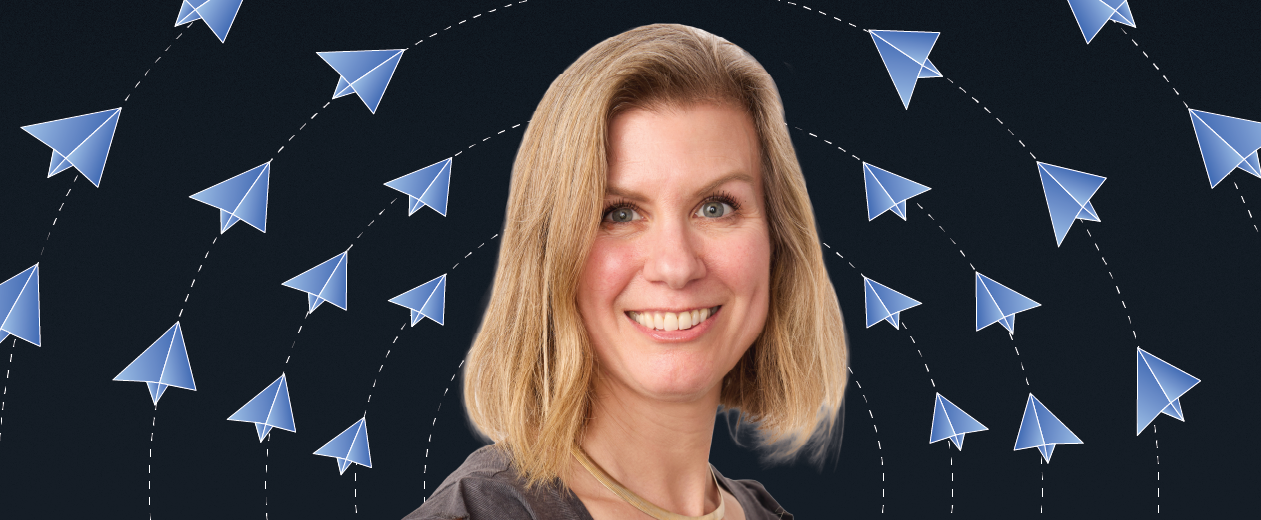
February 26, 2026
February 26, 2026

Reading time
July 10, 2024
June 29, 2023

Each year, Americans celebrate Pride Month in honor of the Stonewall Uprising that helped spark the Gay Liberation Movement 54 years ago. There has been much progress in the fight for equality since then, including the community’s expansion to include all LGBTQ+ people. But this year’s political and social efforts to take away legal rights that have been hard won have been more organized and more prolific.
A record number of anti-LGBTQ bills have been proposed in state legislatures this year — 491 as of June 23, ranging from bans on discussing or reading about gender identity in schools, banning drag performances, to making gender-affirming healthcare illegal for transgender youth, according to data compiled by the American Civil Liberties Union. That’s more than double the 180 bills proposed last year.
To find out how all of this is affecting queer and transgender people who are impacted by the measures, Mission North’s LGBTQ+ employee resource group organized a panel with representatives from media, and the entertainment and nonprofit worlds. The panel was held in Mission North’s Brooklyn office with company employees throughout the country joining in via Zoom (you can catch that video here). My colleague Nicole Swartz and I hosted, joined by our three esteemed guests:
We’ve captured some of the Q&A here, a sampling of a conversation that was at times humorous and fun, but also had an undercurrent of urgency and concern for the very real erosions to human rights the LGBTQ+ community is currently suffering.

Christina: "When you see another queer person, we often greet ourselves with “Happy Pride!” almost like it's Christmas … like we're part of the same community celebrating the same thing. So the first part of it for me is just reminding myself how wonderful it is to be part of this incredibly diverse and committed community that stretches around the world. We're members of a really broad family and we have a lot of common interests, a lot of interests that diverge, but we can all come together to support each other.
But it's also a time for me to recommit to the reasons why Pride started in the first place, which was as a political struggle against forces of oppression. It's time to stay abreast of what's going on. For example, the legal challenges we’ve been discussing and the inequities in healthcare, incarceration and policing. I think this is a great time to spend as much energy on recommitting to those sorts of struggles as you want to spend on the partying and celebration part.”
Junior Mintt: “I think the biggest hurdle we have is making sure that allies stay engaged outside of Pride month and in topics that may not seem to benefit their own interests.
A huge obstacle for the queer community as a whole is making sure that the people who say that they support us really do support us on things that may even go against their own interests or not benefit them in a certain way. If not, then queer people, black trans people, queer trans youth, all of us will be diminished. I want our allies to begin to involve themselves outside of Pride Month in the queer community. Allies need to stay very engaged with what's happening and not wait for a news headline to happen because black trans people die every day and they don't get proper news headlines about it.”
Adam: “I think the healthcare bans mentioned were really, really concerning. It’s a very direct way to ban trans people from existing, literally trying to stop them from being able to access health care that they deserve and need. Our team at Campaign for Southern Equality has been working on a project called the Southern Trans Use Emergency Project. We're doing patient navigation for folks who are actively losing health care. We're able to hop on the phone with them, identify providers out of state, or in a contiguous state or a telehealth provider where they have to drive across the border, call and get their prescription into a pharmacy in a safe state. … We're also doing funding to ensure that they can get there with the guests or pay for the hotel. It's been a really inspiring project for me; I don't want trans kids to feel like they have to de-transition. I don't want trans adults in Florida to feel like their only option is de-transitioning. So I love this project.”

Junior Mintt: “Another way of ensuring that the voices are heard are to support the disenfranchised communities within queerness through political action, economic action, and cultural action. It is talking to your loved ones and having conversation about what they actually think and not letting it be like ‘well, if we talk about it at Thanksgiving, then you know, I'll fight for it.’
It's about having difficult conversations because your family member could be the one that's misgendering me and then following me home. Economically, it’s paying us, making sure that even if we're not doing a service for you, you can find a black trans person [makeup] demo on Instagram easily and just send them $20 for no good reason! You can do consistent things with your privilege.”
<split-lines>"Another way of ensuring that the voices are heard are to support the disenfranchised communities within queerness through political action, economic action, and cultural action."<split-lines>
Christina: “I love writing about queer stories because I feel like it's one of the ways that I can bring what's important to me into my job. For a long time, there's been a conception about news media that is now starting to shift; it used to be very much like, the best reporter leaves everything about themselves back at home when they go out to do their job. And I think there's become more of an awareness recently that everybody has a perspective.
I think a lot of newsrooms are now recognizing that it's actually an asset for people to bring their identities to bear on their reporting. For me, that means I have an added expertise when I go to report a queer story or write a piece of analysis about queer issues. It also makes me a more trustworthy person when I go to a gay bar to interview people or reach out to a trans person who's testified against a bill. Because I'm part of that community too.”
<split-lines>"I think a lot of newsrooms are now recognizing that it's actually an asset for people to bring their identities to bear on their reporting."<split-lines>
Adam: “I do have hope in little moments that I experience; we speak to parents all the time who really didn't know what it meant to be trans. They had never had an LGBTQ person in their life. And they're doing everything they can to support their kid and get the healthcare that they need. We also have city council members and county commissioners who are really sticking their neck out to pass even something as simple as a pride proclamation, and they're doing it, really putting in the work to do it. And that gives me hope. It gives me hope to see people thinking about these things thoughtfully.”
<split-lines>"We speak to parents all the time who really didn't know what it meant to be trans. They had never had an LGBTQ person in their life. And they're doing everything they can to support their kid and get the healthcare that they need."<split-lines>

February 24, 2026
February 24, 2026

February 25, 2026
February 13, 2026